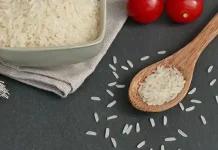Oh no! I am getting overweight! I need to stop binge eating and need a weight loss diet plan ASAP!
Is that you? If the answer is yes, then you are in the right place. We often start munching whenever we can, wherever we can, and that kicks us off from leading a healthy and hearty lifestyle. In extreme cases, we try detox weight loss drink or extreme weight loss methods, which, in the long run, can mess up the metabolism. Hence, knowing the concept of science-backed diet plans is essential first. In addition, you need to do your own research and have the mindset to stick to it.
Well, I am here to help you on this journey.
Will this blog make you lose weight in 7 days? Nope!
But will it educate you about popular diets and the science behind them? Hell yeah! So, instead of panicking on the weight machine, just start learning with me!
Weight Loss Diet Plans: The Ultimate Nitty-Gritty
I am about to introduce the five most commonly practiced diet methods of recent times. From this segment, you can gain basic knowledge about the diet methods. In addition, you will find weight loss tips for beginners, which include weight loss tips for men and women. So, why wait more? Just hop on!
The Ketogenic (Keto) Diet
You have probably heard about the keto diet as the most popular weight loss diet. This is it! It has negligible carbohydrates and a significantly high amount of protein and fat.
Understanding Ketosis
Before you just jump into following this popular keto trend, learn the fundamentals first. The human body uses glucose from the cells as the primary energy source. However, when you follow a ketogenic diet and enter ketosis, the liver breaks down stored body fat. To clarify, the broken-down molecules are ketones. This process, called ketogenesis, gets the body into a state where it burns different types of fuel to get energy.
However, if you want this process to start inside your body, you must limit your daily carb intake to less than 40-50g, depending on your body weight. Still, this process can vary from person to person. Moreover, some people may also need a specialized diet plan to reach the state of ketosis.
Types of Keto Diet
In recent years, more keto-inspired diet methods have gained popularity in the nutrition field. Among them, the carnivore, paleo, and Atkins are mostly the talk of the diet town.
About Keto Diet: From the Expert’s Desk
We are taking suggestions from Howard LeWine, M.D., the editor-in-chief of Harvard Men’s Health Watch. Howard suggests taking lean and healthier sources of protein. Also, the keto diet demands up to 70% of daily calorie intake from fat.
Hence, during the keto diet, fat intake should come from healthy sources like coconut oil, olive oil, almonds, butter, etc.
Pros:
- You can see radical weight loss within a few weeks.
- Your cravings and hunger pangs will be under control due to high protein intake.
- After a week, you will notice better focus and energy.
Cons:
- This is not a sustainable diet method.
- Due to deficient carb intake, there could be significant side effects in the long run.
- Some people may experience uncomfortable symptoms or “keto flu,” but it usually lasts only a few days.
- The lost weight can return once you increase carb consumption.
Who Should Try It:
People with conditions like insulin resistance, diabetes, PCOS, or obesity can follow keto under expert guidance. As this diet restricts carbs, it can significantly improve these conditions. Moreover, healthy and fit people can follow keto for faster results than other diet methods.
Worried about eating late at night? Here are some tips on late-night snacks ideas for movie time.
The Mediterranean Diet
We are going to talk about the Mediterranean Diet now. This is because, most often, to reduce the possible side effects of keto, dietitians suggest a Mediterranean-style diet after a few months. As a result, the person following it can lose weight and continue with the diet simultaneously. Now, we will discuss this weight loss diet plan.
The Mediterranean diet comprises fruits, vegetables, and other plant-based meal consumption. It also promotes consuming healthy fats. Thus, while following this style, you can remove any strict diet calculations and focus on your overall daily food consumption.
Origins of the Mediterranean Diet
From the name, you can guess that this diet originated from the neighboring countries of the Mediterranean Sea. That means people from Italy, Greece, Spain, and France mainly started following this diet trend based on their traditional cuisines.
What’s Special About This Diet?
Hearty, wholesome, and close to nature—these are the terms I would love to use when defining the Mediterranean diet. This is because you need to have more greens, fruits, whole grains, legumes, seeds, lean protein, nuts, and healthy fats while on this diet. Sounds impressive, right?
As expected, there are no ultra-processed foods, junk or refined carbs, or added sugar or alcohol.
Mediterranean Diet: Anti-inflammatory or Not?
According to a study journal from PubMed Central, people who did not follow the Mediterranean diet regularly were prone to higher levels of inflammation in the blood. As you can see, this diet includes most of the food categories that have anti-inflammatory properties.
Regardless, more research is necessary to determine the entire effect of the Mediterranean diet on inflammatory conditions.
In any case, not only can it help you lose weight, but it can also support long-term health benefits.
Pros:
- The Mediterranean diet can lower the risk of heart disease.
- It can be a great way to maintain a sustainable diet plan.
- This diet favors high-fiber and antioxidant-rich foods.
Cons:
- You may need to set boundaries for specific cravings.
- This method is not a quick weight-loss program.
Who Can Try This
The Mediterranean diet is most suitable for those who want to prevent chronic diseases and lower the risk of cardiovascular issues. Hence, it can be your go-to option if you are all for a balanced and wholesome weight loss diet.

Image source: Pixabay
Intermittent Fasting Diet (IF)
Here goes another popular weight loss diet method: Intermittent Fasting (IF). This one differs from most conventional diet methods because of its eating pattern.
Intermittent Fasting is not a nutrient-based diet but a process of time-restricted eating. Hence, while following IF, you do not have to keep track of the calories in all foods. However, it is necessary to control portions.
Furthermore, IF is divided into two segments: the eating window and the fasting window, during which you can’t eat for specific hours.
How It Works
What I love about the Intermittent Fasting diet is its flexibility. You can divide the eating and fasting window according to your lifestyle. Still, if you have any lifestyle diseases like type-2 diabetes, hypo/hyperthyroidism, PCOS, fatty liver, or anything similar, you might want to consult your nutritionist beforehand.
The most commonly followed ratio of IF is 16:8, which means you need to finish eating for the day within 8 hours and keep fasting for the remaining 16 hours. For instance, if you start your eating window at 12 PM, your eating window closes at 8 PM. From 8 PM to 12 PM, the next day is your fasting period. You can follow this arrangement on repeat.
And here’s the good news: You can take zero-calorie liquids like green tea, black coffee, black tea, plain lime water, or infused water without sugar during the fasting period.
Other variations of IF exist, such as 14:10, 18:6, 20:4, and alternate-day eating. However, experts recommend seeking professional healthcare advice before going above the 16:8 IF method.
Experts’ Opinion on Intermittent Fasting
Let’s see what the experts are saying. Professor Dr. Frank Hu, from the Nutrition and Epidemiology Department at Harvard T.H. Chan School of Public Health, says, “Recent research has found that intermittent Fasting has a similar or even modest benefit over traditional calorie-restriction dieting for weight loss. But perhaps its main advantage is its simplicity, making it easier to follow compared with other weight-loss plans.”
Well, if you are a fan of marketing gimmicks like how to lose weight in 7 days, you might be disappointed with IF. This is because it will take significant time to see good results with Intermittent Fasting as a weight loss diet. According to Dr. Hu, you can lose 0.5-1 lb. per week with this method, which is pretty decent. That being said, IF can be your go-to diet when you want to know how to lose weight fast, naturally, and permanently.
Pros:
- It can aid in weight loss.
- Fasting helps control blood sugar, high blood pressure, and high cholesterol levels.
- You can reduce symptoms of inflammatory diseases.
- Proper Intermittent Fasting boosts energy levels.
- This diet method improves the symptoms related to insulin sensitivity.
Cons:
- IF is not suitable for people with any metabolic or lifestyle diseases unless recommended by a nutritionist.
- It may be challenging to follow the fasting methods in social situations.
- A restricted eating window can lead to overeating in a short period.
- You may feel overly hungry for the first couple of days.
Who Can Try This Method
IF can be a great option if you are trying to be a bit flexible with your weight loss at home. It also allows you some flexibility compared to regular strict diet plans.

The Paleo Diet
Among all the modern-age diet methods, the Paleo diet has taken its inspiration from the 2-million-year-old Paleolithic era. Hence, it introduces the ancient traditional eating habits of humankind from that time.
What Can You Consume on the Paleo Diet?
The Paleo diet encourages the daily intake of proteins like fish, lean meat, nuts, seeds, fruits, and veggies. The source of fat is olive oil and coconut oil. However, here’s the twist: You are not allowed to have even whole grains or anything refined in this diet. That means NO to dairy items, sugary foods, alcohol, and processed foods as well.
In a nutshell, the idea behind the Paleo diet is to consume only foods from the Paleolithic age.
Scientific Findings
Only short-term study results are available for the Paleo diet. These results imply its contribution to better weight loss and improved insulin sensitivity conditions. In addition, some studies showed that people following the Paleo diet significantly reduced their waist circumference. Nonetheless, long-term research is still necessary to claim the safety and efficacy of this diet.
Pros:
- This diet has zero processed foods.
- In some cases, it may improve gut health conditions.
- This diet opts for clean eating along with substantial weight loss.
Cons:
- This diet encourages a higher intake of red meat.
- The restrictive methods may only work well for some. Additionally, these boundaries can cause nutrient deficiencies in vitamin D, calcium, and other micronutrients.
- In the long run, managing this diet can be costly.
Who Should Try It
This diet is suitable for people who consciously want to avoid grains and dairy and those who are sensitive to processed foods.
The Plant-Based Diet
Last but not least, we are going to discuss the plant-based diet. As the name suggests, 85-90% of daily calorie intake from this method comes from vegetarian options like fruits, vegetables, nuts, seeds, whole grains, and other plant-based choices.
What the Experts Are Saying
For your convenience and reference, we found guidance from Dr. Gemma Newman, known as the “Plant Power Doctor.” She recommends maintaining a whole-food-based diet plan while on a plant-based diet.
Moreover, Dr. Newman encourages trying a variety of options and recipes. This is because people may lose motivation or fill themselves up with starchy food options like potatoes.
Here’s another piece of advice from her: She recommends eating legumes and including chickpeas, black beans, butter beans, and lentils in your meals.
Then again, even though they are fiber-packed and a good source of plant-based protein, she advises moderate intake at first because your body needs time to build up a gut tolerance for these beans.
According to studies, people on a plant-based diet tend to keep their weight in check more easily. That means they gain less weight than those consuming animal-derived protein options.
Types of Plant-Based Diets
- Vegan
- Vegetarian
- Flexitarian
- Whole-Foods, Plant-Based
- Mediterranean
Pros:
- This option is an eco-friendly and long-term sustainable diet.
- There is less scope for consuming junk food.
- You can eat more because plant options are lower in calories.
- Properly arranged diet plans are high in essential vitamins and micronutrients.
Cons:
- Most plant-based diets lack sufficient protein, so you need to search for more viable options.
- Attending social gatherings and buffets may be difficult because of limited vegetarian options.
- People often need supplements or fortified foods to fill gaps for calcium, iron, iodine, and vitamin B12.
Who Should Try It
This diet requires mental strength, so it may only be suitable for some. However, if you’re focused on an eco-friendly diet from an ethical point of view and genuinely enjoy plant-based meals daily, it can be a great, inexpensive option to kickstart your weight loss journey.
Key Takeaways
We know that going through all this information at once may seem overwhelming. But remember that there is no “one size fits all” diet method out there. If you see someone doing well with keto and losing weight drastically, that may not be the case for you. Alternatively, another diet plan that suits your weight, height, metabolism, and other medical factors may help you reach your ultimate weight loss goal.
Here are some key points I’d like to remind you of before I go:
- Do not try to lose weight by starving or doing intense workouts.
- Always maintain a healthy eating strategy, no matter what diet method you follow.
- Remember, losing weight fast can also lead to gaining weight back fast. Hence, fad diets are a big no.
- Focus on sustainable and safe diet plans.
- Make sure your diet doesn’t interfere with any medical conditions you currently have. Getting check-ups and expert advice is key in this regard.
- Maintain a proper sleep cycle; otherwise, losing weight may be difficult.
- If you cannot lose weight even after following a proper diet, see a physician to identify any underlying health conditions.
That’s it! Looking forward to your nourishing weight loss diet journey. Happy dieting!















